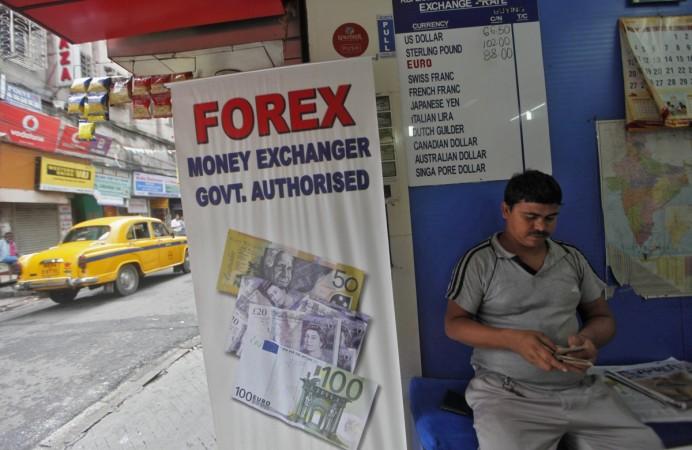
The Indian rupee opened marginally higher at 66.86 on Friday after falling below 67 to the US dollar the previous day amid media reports of a proposed devaluation of the currency, though a senior finance ministry official denied any such plan. The case for such a devaluation, if any, does not exist at this juncture, according to an economist at DBS Bank.
"We neither see a policy need nor a macroeconomic rationale behind a deliberate attempt to devalue the currency at this juncture. Firstly, such an attempt would run counter to recent efforts by the Reserve Bank of India and the government to establish macro-stability, transparency and policy predictability to attract and retain investors," Radhika Rao, economist, group research, DBS Bank said in a note on Friday.
"Signs of bottoming-out in yesterday's Aug exports data also question the need to deliberately weaken the currency," she added.
Exports stood at $21.51 billion last month, down 0.30 per cent from $21.58 billion in August 2015, while the year-on-year fall in the preceding month was 6.84 percent.
With imports shrinking 14 percent in August, the trade deficit for the month narrowed 38 percent to $7.67 billion from $12.39 billion in August 2015, while the cumulative deficit for the April-August period stood at $34.66 billion, down 40.6 per cent from $58.38 billion during the corresponding period last year.
Rao said that a devaluation of the domestic currency could end up impacting investor sentiments, besides setting in motion the outflow of money from the country.
"Not only could such a shift (rupee devaluation) harm investment interests and trigger capital outflows, but also dilute the boost from the ongoing reform agenda. Memories of China's attempt to devalue its currency last year and resultant spike in volatility will also be a deterrent for the Indian authorities," she said in her note.
The media speculation about the government considering a proposal to devalue the currency came from a senior finance ministry bureaucrat.
"The value of rupee is determined by the market and there is no plan to change policy. Reports that the government wants to devalue the rupee are false," Reuters quoted Shaktikanta Das, the Economic Affairs Secretary, as saying on Thursday.
However, a devaluation of the currency to around 70 would help in lifting exports, according to Ajay Sahai, director general, Federation of Indian Export Organisations (Fieo).
"If rupee is assessed at the fair value, we feel that rupee may move into the band of 70 plus which will be helpful to the Indian exports," Sahai told CNBC-TV18 on Thursday.
However, such a move could be counter-productive from an inflation point of view.
"Finally, given the central bank's focus on inflation-targeting and early signs that disinflation is taking root, a weaker rupee could stoke imported inflationary pressures, an unnecessary development at this stage," Rao said.

















